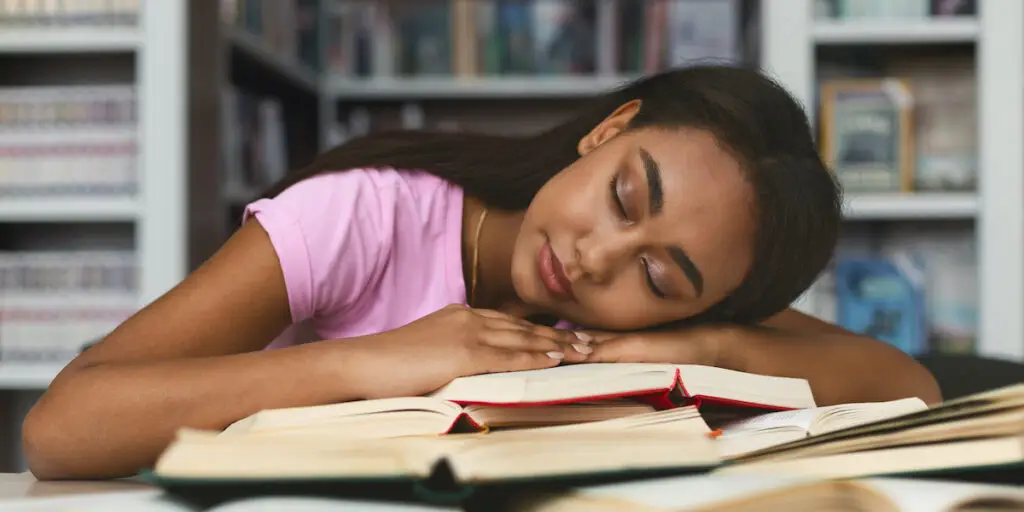The following is excerpted from an online article posted by StudyFinds.
If you know a teen in need of more regular shut-eye, researchers from Rush University Medical Center have two suggestions: teach them strong time management skills and consider trying bright light therapy.
Adolescents and teens need roughly eight to 10 hours of sleep daily for ideal well-being. Ironically, the adolescent mind develops in such a way that most teens find it very easy to stay up late. Add in the nuisance of a new academic school year throwing sleeping rhythms further out of whack, and it’s very common for teens to experience sleep deprivation, daytime fatigue, and changes in mood and focus.
Researchers explain that the average teen often deals with two competing forces when it comes to sleep: school obligations necessitate an early bedtime, but on a biological level, teenagers naturally want to stay up late.
With this unique, conflicting relationship in mind, study authors decided to conduct a two-week intervention experiment focused on targeting the circadian system using a variety of different behavioral measures. The end goal: helping teens stick to a better nighttime routine.
First, each participant underwent bright light therapy on two weekend mornings for a total of two and a half hours. A treatment for circadian rhythm sleep disorders, bright light therapy involves remaining within a certain distance of a bright white light. The patient does not have to stare directly at the light, just facing its general direction will suffice. The idea is this type of therapy helps “reset” the circadian clock, helping teens wake up earlier and making it easier to fall asleep earlier at night.
After that, participating teens received time management tools and learned how to better address and navigate barriers to an earlier bedtime, like limiting certain after-school activities. Ultimately, researchers were able to shift the teens’ bedtime by an hour and a half. Total sleep time also increased by about an hour.
“The interesting thing is that teens with late circadian clocks shifted by up to two hours earlier,” said Stephanie J. Crowley, PhD, an associate professor of psychiatry and behavioral sciences and the director of the Pediatric Chronobiology and Sleep Research Program at RUSH. “And the teens who had an earlier circadian clock didn’t need to be shifted any earlier. They just needed the behavioral support of trying to manage their time in the evening and increase their sleep duration.”
The study was published in the journal SLEEP.
Source: StudyFinds
https://studyfinds.org/help-teens-get-more-sleep/



